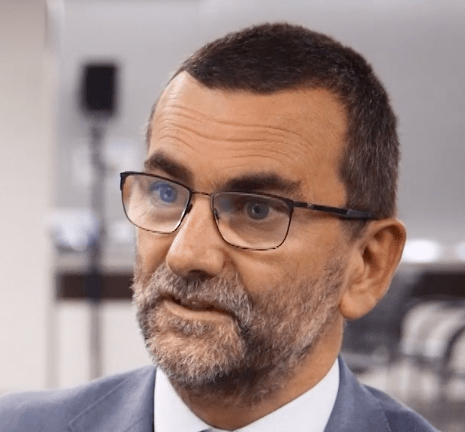
Artificial Lawyer recently caught up with the team behind Clyde Code, the new smart contract consultancy group at global insurance firm, Clyde & Co. Partners Nigel Brook and Lee Bacon, who are founding members of the Code team, talked about what they’ll be doing for clients, how important smart contracts are and how the sector is growing exponentially.
Great to meet the team, let’s start off with your origin story. How did Clyde Code come about?
We have both [Nigel & Lee] been reviewing the impact of blockchain and related technologies since 2015. As part of those initial talks we were in discussions with Gary Nuttall, widely regarded as one of the leading lights in this area, especially in our core sector of insurance.
We realised that in order to advise fully on Smart Contracts and related areas we would need to understand the technical issues and not just provide legal advice in a technical vacuum.

What do you hope Clyde Code will achieve for your clients?
We hope to provide a one stop shop for our clients’ Smart Contract needs. We combine the leading insurance led law firm with one of the leading software consultants in the sector.
Will you be creating the self-executing code for smart contracts?
The offering is to provide bespoke services at the outset. This includes the creation and verification of Smart Contracts, including the code. We envisage offering a wider platform of off-the-shelf products as the market matures.
Smart contracts have already started to be used commercially by insurance companies such as AXA, how do you see smart contract use spreading among large insurance companies and other corporates?
There has been exponential growth over the past six months and their use has already spread into many large corporates. Thus far the focus has been on making execution methods more efficient, and we envisage more creative and innovative solutions being promoted alongside back office functions (or market functions for the insurance/reinsurance market).

How should the legal industry approach the fact that there are many people creating ‘DIY’ smart contracts, often using templates from marketplace sites, and placing them on-chain, e.g. on the Ethereum blockchain, and simply ‘getting on with it’, without any legal input? Will this remain a fringe activity, or do you see this spreading and if so, what does this mean for the legal sector?
In any innovative area there is the need for trail blazers and for a process of trial and error.
Some developments have been made without a full consideration of the legal and regulatory concerns and we do see the scope for disputes over the next few years.
As the market matures there is a need for common standards to allow the potential to be reached – common both on the technical and legal basis. We are signing up to the Accord Project on that basis [see story here]. However, we are also keen that innovation is not smothered. Over-cautious lawyers can hinder development, so creativity and open-mindness is required.
You mentioned that Clyde Code has advised on some ICOs. How do you see the regulatory position on ICOs stabilising in the future, in the UK and globally?
We have experts in the Middle East who lead our ICO practice. This is a complex area in real need of legal and regulatory advice. We envisage a regulatory distinction between cryptocurrencies in their pure form and tokenised platforms, which function in parallel to fiat currency relationships.

IBM Watson has said it sees smart contracts/blockchain and AI doc review coming together in the future, as there will be billions of documents on multiple blockchains and we’ll need AI-driven NLP to read all of them. What is your view?
The Smart Contract world is embryonic and focused on simple linear relationships (if X happens Y happens) and back office functions. The combination with AI offers a significant scope for widening the functions.
And lastly, given the growth of this area, how long do you think it will be before smart contract practices become a signifiant part of all major law firms?
As the market matures and expands then we’d expect most major law firms to be offering legal advice with respect to smart contracts.
Whether other firms adopt our approach of bringing on board technical skills is difficult to predict. This is innovative and we are taking a flexible approach. The scalability is yet to be tested. We are confident that we have a good offering and it wouldn’t surprise us if some other firms follow suit.
2 Trackbacks / Pingbacks
Comments are closed.